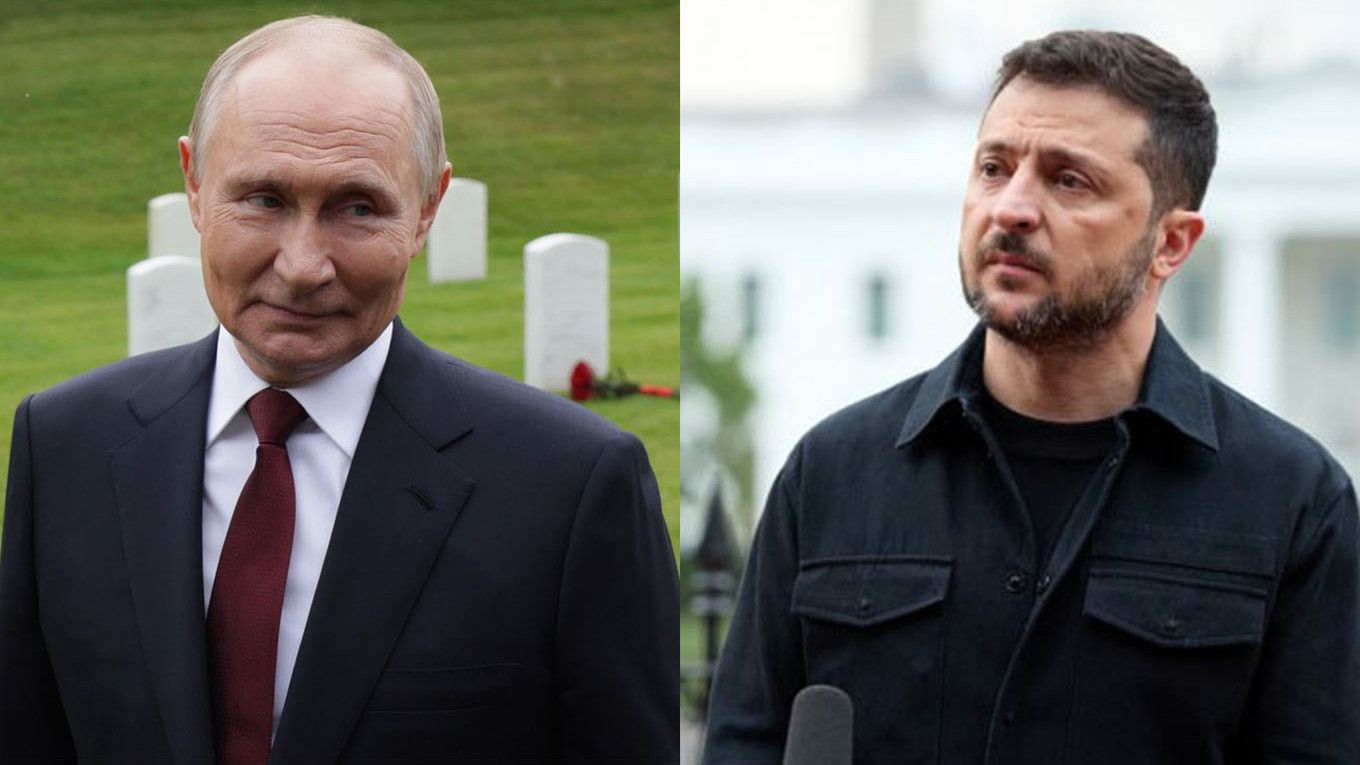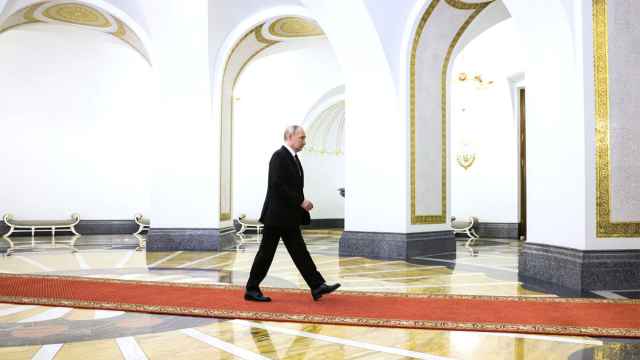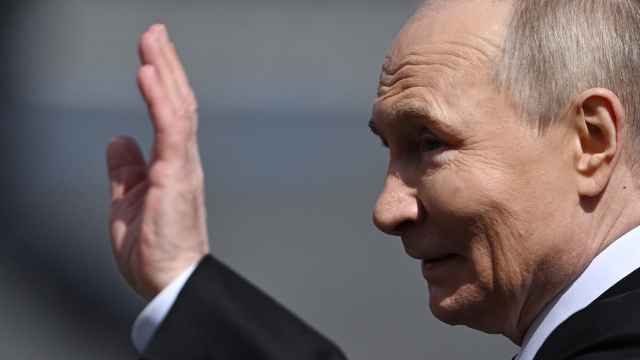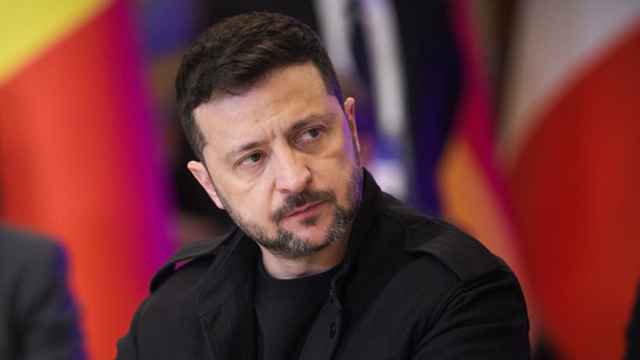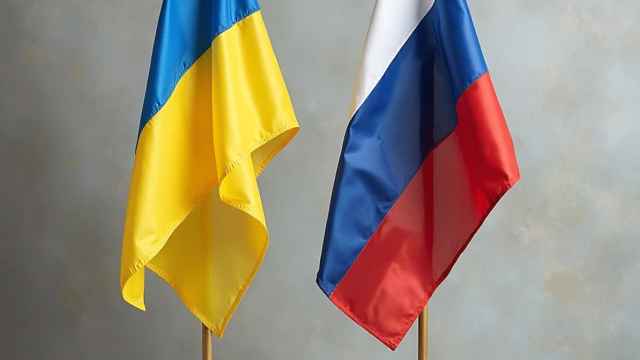The possibility of a tête à tête between Russian President Vladimir Putin and Ukrainian counterpart Volodymyr Zelensky is dominating headlines.
U.S. President Donald Trump is pushing for the two leaders to meet following his summit with Putin in Alaska last week and talks with Zelensky and European leaders at the White House on Monday.
Peace talks between Moscow and Kyiv in 2022 had collapsed, while renewed negotiations earlier this summer also failed to reach a breakthrough.
But three and half years since Russia’s invasion of Ukraine — which has devastated Ukraine and left tens of thousands dead — will the leaders of the two warring states finally sit down at the negotiating table?
The Moscow Times looks at the obstacles that could derail a meeting:
Diplomatic willpower
Zelensky and Putin have met face-to-face only once, as part of Normandy Format talks on resolving the war in eastern Ukraine alongside the leaders of Germany and France in December 2019 in Paris.
The two have had no direct contact since the start of the full-scale invasion in 2022.
After speaking to Putin by phone on Monday, Trump said that he “began the arrangements for a meeting, at a location to be determined,” between the Russian and Ukrainian leaders. The White House also announced Tuesday that plans for a bilateral summit between the two leaders are now “underway,” with “many options” being discussed.
Zelensky indicated he was ready to meet Putin following Monday’s talks in Washington, but said Thursday that he would only meet with the Russian leader after Ukraine’s allies agreed on security guarantees for Kyiv that would prevent a future Russian attack.
Moscow’s position, however, remains far less clear.
The Kremlin has not confirmed whether preparations were in progress or even if Putin would agree to meet Zelensky, saying on Tuesday only that it was “considering the possibility of elevating the level” of direct talks without providing details.
Russian Foreign Minister Sergei Lavrov confirmed Wednesday that Putin had agreed to “think about raising the level” of discussions on Ukraine during a phone call with Trump.
He also stressed that any meeting between the two leaders “must be prepared in the most meticulous way” to avoid a “deterioration,” but added that Moscow was “ready to work in any format.”
Ivan Stupak, an adviser to Ukraine’s parliamentary committee on national security, said that while “there is a consensus in Ukraine that the war needs to be stopped,” he believes Russia is unlikely to hold “a meeting for the sake of a meeting” and “will most likely drag out this issue and avoid meeting with Zelensky.”
“First, a lot of paperwork must be done, there should at least be an understanding of what we are agreeing on…Only then can a future meeting between the two presidents be planned,” Stupak, a former Ukrainian security services officer, told The Moscow Times.
There is still no confirmed date for a potential meeting. German Chancellor Friedrich Merz said on Tuesday that such talks could take place within the next two weeks.
The venue also remains uncertain, particularly given that Putin is wanted by the International Criminal Court.
Switzerland’s foreign minister said his country would grant Putin immunity from arrest if he came to the country for peace talks. Hungary has also offered to serve as a venue.
Putin had reportedly suggested holding the talks in Moscow in his call with Trump on Monday, to which Zelensky replied: “No.”
Zelensky insists that talks should take place in a neutral part of Europe, with Switzerland, Austria or Turkey seen by Kyiv as suitable options.
Legitimacy of talks
Despite having signed a decree effectively banning negotiations with Putin in 2022, Zelensky invited the Russian leader to talks in Istanbul in May.
Ukraine’s peace framework, which Kyiv’s delegation brought to bilateral talks in Turkey in June, also proposed a leaders’ summit to agree on key aspects of a peace agreement.
The Kremlin, which has long sought to force a change in Ukraine’s leadership, has repeatedly said it views Zelensky as an illegitimate president, pointing to the fact that his term expired in 2024. Ukraine has postponed its presidential elections under martial law introduced after the invasion.
“It doesn’t matter who conducts the talks, even if it is the current head of the [Kyiv] regime. I am even ready to meet, but only if it is a concluding stage — not to sit there endlessly dividing things, but to put a full stop,” Putin said in June.
“But that full stop, that signature, must belong to legitimate authorities. Otherwise, you know, the next one will come and throw everything into the trash. That’s not acceptable — we are dealing with serious issues. That’s why I am not refusing — but a lot of work must be done first,” he added.
Territorial stakes
A key point of contention between Russia and Ukraine is the status of territories captured by Moscow in any peace agreement.
Russia currently controls around one-fifth of Ukraine, including most of the Luhansk and Donetsk regions in the east and parts of the Zaporizhzhia and Kherson regions in the south, in addition to the Crimean peninsula, which Russia annexed in 2014.
Kyiv has consistently maintained that it will never recognize Russia’s occupation of its lands.
These territories are enshrined in the constitutions of both countries, further complicating prospects for compromise.
Trump suggested on Monday that Ukraine must give up Russian-annexed Crimea and has indicated that a deal would involve “some swapping, changes in land” between the countries.
Zelensky said that the question of the occupied territories would be addressed specifically during direct talks with Putin.
Battlefield realities
The prospect of a Putin-Zelensky summit has emerged as Russia has intensified its offensive on the front lines.
Although Russia’s advance has been slow and difficult and the overall front line has barely shifted over the three and a half years of war, “from a military perspective, Russia has more prospects,” Stupak said.
The U.S.-based Institute for the Study of War said Russian forces recently advanced in the Donetsk region while also continuing offensive operations in Sumy and Kharkiv as well as limited attacks in Kherson.
Just ahead of the Trump-Zelensky talks in Washington on Monday, Russian strikes killed 14 people across Ukraine, including on an apartment block in Kharkiv city.
Russia also launched hundreds of drones and missiles against Ukraine on Thursday, in what Kyiv called the largest attack since mid-July.
Maria Snegovaya, a senior fellow on Russia and Eurasia at the Center for Strategic and International Studies, argued that Moscow’s vague statement about “raising the level” of talks in response to a specific proposal for a Putin-Zelensky meeting shows the Kremlin’s real intentions.
“The Kremlin is once again buying time in order to continue its offensive,” Snegovaya said.
A Message from The Moscow Times:
Dear readers,
We are facing unprecedented challenges. Russia's Prosecutor General's Office has designated The Moscow Times as an "undesirable" organization, criminalizing our work and putting our staff at risk of prosecution. This follows our earlier unjust labeling as a "foreign agent."
These actions are direct attempts to silence independent journalism in Russia. The authorities claim our work "discredits the decisions of the Russian leadership." We see things differently: we strive to provide accurate, unbiased reporting on Russia.
We, the journalists of The Moscow Times, refuse to be silenced. But to continue our work, we need your help.
Your support, no matter how small, makes a world of difference. If you can, please support us monthly starting from just $2. It's quick to set up, and every contribution makes a significant impact.
By supporting The Moscow Times, you're defending open, independent journalism in the face of repression. Thank you for standing with us.
Remind me later.



